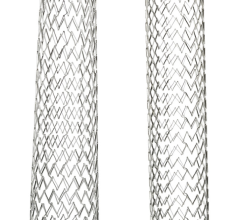January 24, 2008 – “Unadjusted mortality…was significantly lower for drug-eluting stents than bare-metal stents in unapproved indications,” noted Donald S. Baim, M.D., chief medical and scientific officer, Boston Scientific, in a statement issued in an article in the New England Journal of Medicine entitled “A Comparison of Bare-Metal and Drug-Eluting Stents for Off-Label Indications.”
“The analysis from the National Heart, Lung and Blood Institute Dynamic Registry published in today’s New England Journal of Medicine is the latest in a series of studies that have led the authors to conclude that drug-eluting stents are as safe or safer than their bare-metal counterparts, and significantly more effective at reducing renarrowing within the stented segment (restenosis). This 6,551-patient registry of bare-metal and drug-eluting stents included a majority of patients who fell outside the current approved indications for drug-eluting stents, but who nonetheless showed no increase in either risk-adjusted mortality or heart attack, and a significantly lower rate of repeat procedures, through one-year follow-up. While the raw (unadjusted) mortality was higher in unapproved indications versus approved indications for both drug-eluting stents and bare-metal stents, it was significantly lower for drug-eluting stents than bare-metal stents in unapproved indications.”
“These data are consistent with a series of other large registry analyses comparing drug-eluting and bare-metal stents that have emerged over the last year, and which have reasserted the underlying safety and efficacy of drug-eluting stents. This series includes the most recent data from the Swedish Coronary Angiography and Angioplasty Registry (SCAAR), which reversed the findings from the SCAAR group’s earlier analysis suggesting higher mortality with drug-eluting stents. The most recent SCAAR data showed no difference in mortality for drug-eluting stents compared to bare-metal stents," said Dr. Baim.
"In addition, a number of other studies, including the Western Denmark, New York State, Ontario and Massachusetts registries, as well as our own meta-analysis of all published mortality data containing nearly 150,000 patients, have found that drug-eluting stents may actually reduce mortality by more than 20 percent compared to bare-metal stents, while also significantly reducing the need for repeat procedures to treat restenosis,” he added.
For more information: www.bostonscientific.com


 November 24, 2025
November 24, 2025 









